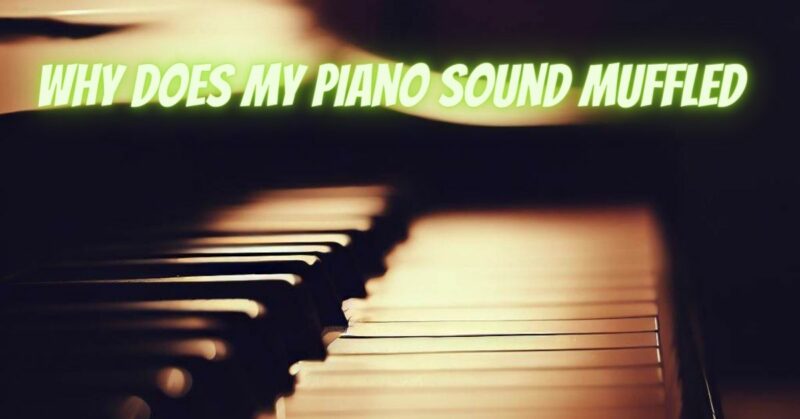A piano is meant to produce a rich and vibrant sound, but when it sounds muffled or dull, it can be disheartening for any pianist or music lover. A muffled piano sound can lack clarity, brightness, and projection, diminishing the overall musical experience. To address this issue, it is essential to identify the potential causes and implement appropriate solutions. In this article, we will explore common reasons behind a muffled piano sound and provide practical tips to restore the instrument’s desired tonal qualities.
- Lack of Voicing:
a. Voicing refers to the process of adjusting the density and texture of the piano hammers to achieve the desired tonal characteristics.
b. If the hammers are overly compacted or worn, they can produce a muffled sound. Consult a professional piano technician to assess and perform voicing adjustments to restore the piano’s clarity and brilliance.
- Damaged or Worn Felt Components:
a. The piano’s felt components, such as the hammers, dampers, and key bushings, can wear out over time, affecting the instrument’s tone.
b. Inspect the hammers for excessive wear or grooves, as this can lead to a muffled sound. Similarly, worn dampers or compressed key bushings can also contribute to a loss of clarity. A piano technician can assess and replace these components if necessary.
- Poor Regulation:
a. Piano regulation refers to the adjustment of various mechanical parts to ensure proper key response and consistency.
b. Inadequate regulation can result in uneven key movements or ineffective hammer strikes, leading to a muffled sound. Contact a piano technician to perform regulation adjustments for optimal performance.
- Improper Pedaling Technique:
a. Pedaling is an essential technique for achieving tonal effects and sustaining notes on the piano.
b. Incorrect or excessive use of the sustain pedal can create muddiness and contribute to a muffled sound. Practice proper pedaling technique, using the sustain pedal judiciously to maintain clarity and prevent excessive resonance.
- Environmental Factors:
a. Ambient conditions, such as room acoustics and humidity, can affect the piano’s sound.
b. A room with excessive dampening materials or improper positioning of the piano can lead to a muffled sound. Additionally, extreme humidity levels can impact the wooden components of the piano, affecting its tone. Ensure proper room acoustics and maintain a suitable environment for your instrument.
Conclusion:
A muffled piano sound can detract from the instrument’s inherent beauty and musicality. By addressing potential causes such as voicing, damaged felt components, poor regulation, improper pedaling, and considering environmental factors, you can restore the piano’s clarity and projection. Engage the services of a professional piano technician for tasks beyond your expertise. With proper care, attention, and occasional maintenance, your piano will regain its vibrant and expressive sound, allowing you to enjoy a truly captivating musical experience.


